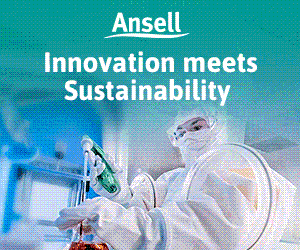HPV technology featured at Infection Prevention 2014 Conference
Along with an overview of disinfection solutions available on the market by David Weber from the University of North Carolina
Cleaning techniques and their efficacy against pathogens such as VRE, MERS and SARS were just some of the hot topics infection control professionals discussed at the recent Infection Prevention Conference. Right at the heart of these talks was hydrogen peroxide vapour (HPV) technology and best practices.
Bioquell’s Senior Microbiologist, Jon Otter, presented, along with two of his peers, a study which shows the capacity of pathogens such as influenza, MERS and SARS to survive for days on dry surfaces. These can then be transferred from surfaces to hands. Facing this challenge they recommended that healthcare workers adopt infection control best practices such as systematic hand hygiene procedures and disinfection solutions.
In his presentation, David Weber from the University of North Carolina, provided an overview of disinfection solutions available on the market and their efficacy against C. difficile, MRSA, VRE and norovirus. He reviewed the Spaulding classification of disinfectants/sterilants which divides medical devices into categories based on the risk of infection involved with their use. Included in his presentation was HPV, which other studies have proved the most efficient against antibiotic-resistant bugs. Bioquell’s recent interventions, to decontaminate facilities across Europe where Ebola patients have been treated, demonstrated its reliability.
The Singapore Hospital presentation focused on how the use of HPV combined with a range of other measures have reduced the number of VRE cases. The bundle was implemented in February 2013 and records show 9.2 cases per month (95% CI: 6.0—13.2) in March 2013, which reduced to 2.4 cases per month (95% CI: 1.1—4.7) by January 2014.
In her closing lecture, Dr Stephanie Dancer highlighted that: 'We are facing unprecedented threats to the management of infection all over the world. As we prepare for a world without antibiotics, research, education and policies on screening, isolation, cleaning and infection control have never been more important. Creative thinking, initiative and courage will be required for future management of infection in hospitals and communities everywhere.'
For Bioquell white papers on infection prevention, please click here.





